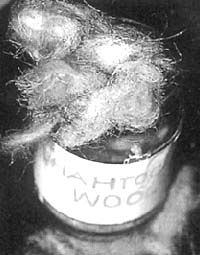Thriving trade

a report by the Wildlife Trust of India ( wti ) and the International Fund for Animal Welfare ( ifaw ) says that despite a worldwide ban, shahtoosh trade continues unabated. Union power minister Suresh Prabhu recently released the report, which is based on investigations that were carried out by wti and ifaw in India, Nepal and Tibet.
The report says that chiru wool is transported from Tibet to Nepal concealed with pashmina wool or hidden inside light mattresses. In many cases, the wool is flown from Tibet to Kathmandu. Once in Nepal, the wool is repacked and then brought to India, where Delhi is the main centre for trade.
"What is really required is a specific enforcement strategy to be followed by China, India and Nepal to check smuggling,' said Vivek Menon, executive director of the trust. "wti has filed a contempt petition in the Jammu and Kashmir high court seeking the enforcement of a ban on shahtoosh trade in the state, which is legally permitted,' said Ashok Kumar, a wti trustee.
Related Content
- Artisanal Shark Trade in the Republic of the Congo
- E-commerce provisions in RTAs: Implications for negotiations and capacity building
- An assessment of South African dried abalone Haliotis midae consumption and trade in Hong Kong
- Corruption could soon wipe out iconic species, CITES warns
- OECD Economic Surveys: South Africa 2017
- Ivory Trade Debate Resurfaces as Southern Africa's Elephants Thrive
